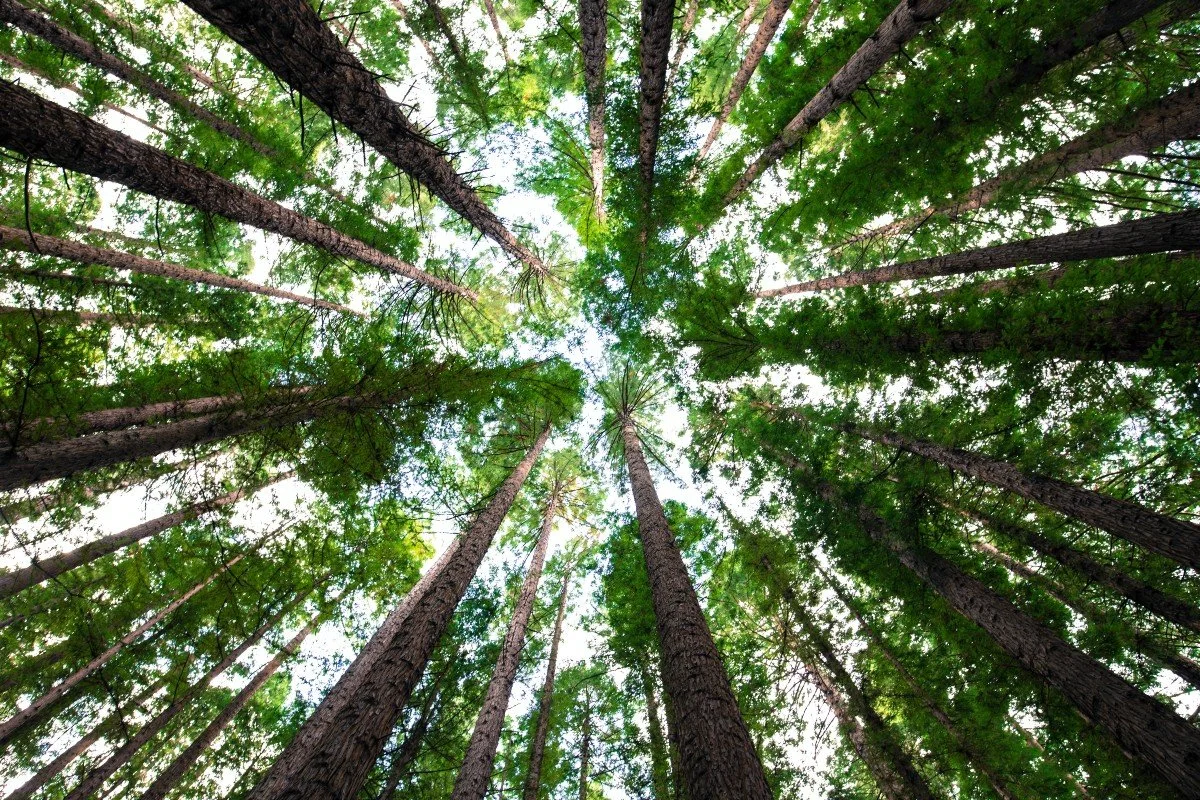Are the Trees Your Enemy?
There is a clear set of principles laid out for the people of Israel in the Old Testament to guarantee the longevity of the land and its sustainability as an ongoing source of food. The goal was to ensure that each generation passed on land to the next generation that would be as fertile as it was for them. For example, in Exodus, we read:
“Plant and harvest your crops for six years, but let the land be renewed and lie uncultivated during the seventh year. Then let the poor among you harvest whatever grows on its own. Leave the rest for wild animals to eat. The same applies to your vineyards and olive groves.” (Exodus 23:10-11, NLT)
This is reiterated again in the book of Leviticus:
“... but during the seventh year the land must have a... year of complete rest.... Do not plant your fields or prune your vineyards during that year. And don’t store away the crops that grow on their own or gather the grapes from your unpruned vines. The land must have a year of complete rest.” (Leviticus 25:4-5, NLT)
In agricultural terms, this is known as fallowing. When you let land lay fallow, it helps the soil regain its fertility and helps rid the area of pests and diseases that can result when you have one type of crop planted and cultivated over and over again in the same place.
While many of the Old Testament dictates were unique for the people of Israel and/or fulfilled in Christ, the heart of God’s intent is often timeless. Here, the big idea was to care for the land in such a way that it ensured long-term use, viability and well-being.
So where might we need to think in a similar way in our day with our creation care challenges and responsibilities?
Think about rainforests.
Rainforests are absolutely integral to God’s creation, producing about 20% of our oxygen and storing a huge amount of carbon dioxide, which drastically reduces the impact of greenhouse gas emissions. Massive amounts of solar radiation are absorbed through rainforests, helping regulate temperatures around the world.
Rainforests also help maintain the world’s water cycle and water supply. A fifth of the world’s freshwater is stored in the Amazon basin alone.
It’s also where much of our planet’s life is. Some estimate that up to 75% of all species are indigenous to the rainforests of our planet. It is also estimated that there may be many millions of species of plants, insects and microorganisms still undiscovered in tropical rainforests. The Amazon rainforest, which is the world’s largest, is home to at least 40,000 plant species, nearly 1,300 bird species, 3,000 types of fish, 427 species of mammals, and 2.5 million different insects. And again, we don’t know how many more remain undiscovered.
Tropical rainforests have also been called the “world’s largest pharmacy” because one out of every four natural medicines have been discovered there. Rainforest plants are used in the creation of muscle relaxants, steroids and insecticides. They are used to treat asthma, arthritis, malaria, heart disease and pneumonia. According to the U.S. National Cancer Institute, 70% of plants useful in the treatment of cancer are found only in rainforests. And we have no idea what breakthroughs in medicine are still to be found in rainforest plants that would be game changers in terms of curing everything from Alzheimer’s to cancer, because less than one percent of rainforest species have been analyzed for their medicinal value.
Yet they are rapidly disappearing due to deforestation, resulting in habitat loss and pollution of the atmosphere.
Just think about deforestation.
Rainforests have been subjected to heavy legal and illegal logging for their valuable hardwoods, as well as agricultural clearing—sometimes called slash-and-burn or clearcutting. The result is that while rainforests used to cover 14% of all the land on Earth, they now only cover 6%. Since 1947, the total area of rainforests has been reduced by more than half.
And it’s not ending.
One hundred acres of rainforest are cleared every minute for agricultural and industrial development.
It reminds me of an intriguing passage from Deuteronomy where a unique prohibition was given even in the midst of warfare:
“When you are attacking a town and the war drags on, you must not cut down the trees with your axes. You may eat the fruit, but do not cut down the trees. Are the trees your enemies, that you should attack them? You may only cut down trees that you know are not valuable for food. Use them to make the equipment you need to attack the enemy town until it falls.” (Deuteronomy 20:19-20, NLT)
It was common in warfare to lay waste to a region during a siege. To not only attack and conquer, but also to ensure that you left the land devastated as well. In other words, environmental terrorism.
God said not to do that.
Instead, protect the trees. Protect what they bring to the world. Don’t do anything for short-terms gains that would jeopardize long-term needs.
After all,
… trees are not the enemy.
James Emery White
Sources
Rainforest facts and figures taken from National Geographic and Wikipedia.
Sandra L. Richter, Stewards of Eden: What Scripture Says About the Environment and Why It Matters (InterVarsity Press, 2020), p. 2.
“Loving the Least of These: Addressing a Changing Environment,” published by the National Association of Evangelicals, Revised Edition (2022), p. 16.

